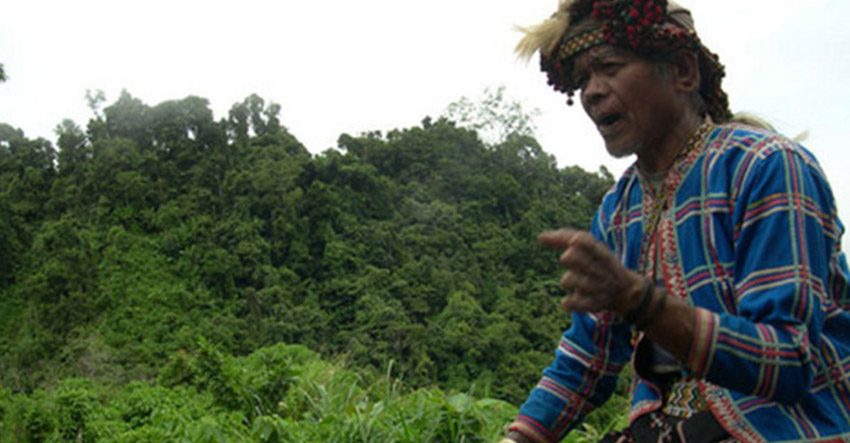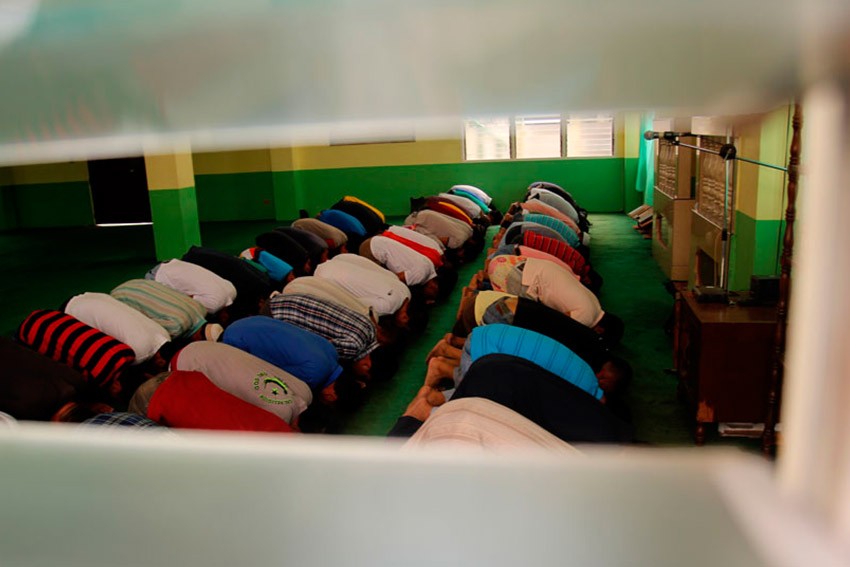Datu Guibang Apoga, the chieftain of the Ata-Manobo tribe in the hinterlands of Talaingod, has been in hiding for a decade now.
The workers and their families held a silent picket in front of the Panabo City Council to solicit support. They were retrenched after DITFI-Dole Stanfilco arbitrarily announced �closure� on Oct. 8. But no help came from any of the councilors, prompting the workers to go back to the picket line at the entrance of the container yard. There, soldiers confronted them.
The military continued attacking Muslim communities even during the Ramadan, according to human-rights and Moro groups. “When entire communities get displaced by war, how are you going to celebrate Ramadan?” one of them asked. “Ramadan completely loses its meaning. Foremost in your mind, when you’re in an evacuation center, is how to survive, where to look for food, or to keep yourself from being harassed, or get hit by a bomb.”
The Patriotic Officers Union � Southeastern Mindanao section, a clandestine organization of progressive bloc within the Armed Forces of the Philippines (AFP), is denouncing the statements of Major Medel Aguilar of the 10th Infantry Division blaming the protesting workers of Davao Integrated Transport Facilities, Inc. (DITFI) for the company’s “closure”.
�How much talent fee is DOLE-Stanfilco paying the Armed Forces of the Philippines to become its foul mouthpiece against the legitimate demands of retrenched workers of DITFI?� This was the question of Kilusang Mayo Uno-Southern Mindanao Region Chair Romualdo Basilio following the accusations of Major Medel Aguilar of the 5th Civil Relations Group that the labor center was behind the �closure� of Davao International Transport Facilities, Inc (DITFI).
�It is difficult for our brothers and sisters in the war-torn areas of Basilan to observe one of the important pillars of Islam when the guns and bombs of the Philippine Army are aimed at them,� said Amirah Ali Lidasan of Suara Bangsamoro, adding that Moro civilians are vulnerable to the military operation conducted during Ramadhan for most of them are weak due to whole day of fasting.

During the commemoration of the 35th year of declaration of martial law on Sept. 21, different lawyers’ organizations in Davao City came together at the Centennial Park not only to light candles for judges, lawyers, and paralegals who were victims of the abusive law. They were also there to denounce the Human Security Act, which they called “illegal.” The lawyers describe the present state of the country as even worse than during martial law. They see more human-rights abuses under the law. On the same occasion, the lawyers launched HOTLINE 296-0070; people who are faced with HSA-related violations can call and ask for help. (davaotoday.com photo by Cheryll D. Fiel)
This short film, by the independent filmmaker Jon Red, is one of the public service advertisements on extrajudicial killings and enforced disappearances in the Philippines that were banned for public exhibition by government censors, who said these films “are presented unfairly, one-sided and undermines the faith and confidence of the government and duly constituted authorities for public exhibition.” Click here to view the other films.
Martial Law still exists in Mindanao, particularly in Moro areas under the pretext of pulverizing terrorists. Thirty-five years later, the public is still being made to believe that the terrorist scare justifies anti-people measures like the Human Security Act and all-out war in Moro communities, even during Ramadhan, the holy month of fasting.

With HSA, poor communities most vulnerable to rights abuses


